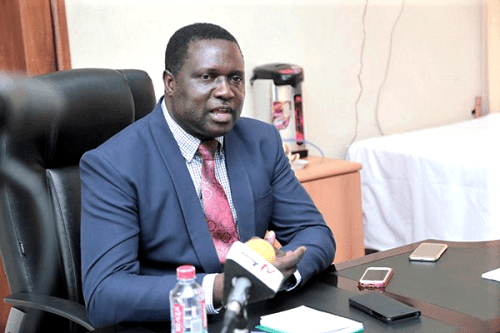Education Ministry denies claims of Wi-Fi payment scandal

The Ministry of Education has denied allegations of service delivery failures and the misuse of public funds associated with the Wi-Fi for Schools Programme.
A report by The Fourth Estate claimed that the Education Ministry paid internet service provider Busy Internet, now Lifted Logistics Limited, GH¢56 million despite failing to provide services to some schools nationwide.
The report indicated that many schools under the government’s Wi-Fi for Schools Programme had for months, and in some cases years, not had internet connectivity, even though the government had paid for the service.
Fourth Estate indicated that though the IT coordinators of some schools reported the challenges they were facing with the Wi-Fi connectivity, Busy Internet failed to act.
In a press release, the Ministry addressed allegations made in a report by The Fourth Estate Media, labelling the report as inaccurate and misleading.
The statement noted that the Government’s educational transformation agenda initiated in 2019 aimed to enhance internet connectivity across Senior High Schools, Colleges of Education, and educational offices nationwide.
The enhanced connectivity was expected to improve learning, administrative efficiency, and research capabilities significantly.
“The Ministry of Education wishes to address the claims made in a recent report by The Fourth Estate Media regarding the Wi-Fi for Schools Programme. The report, which suggests a failure in service delivery and misuse of public funds, is inaccurate and does not represent the facts.”
“In line with the review clause in the contract signed in 2019, an upward review of monthly recurring costs was approved by the PPA and capped to an amount not exceeding GH₵11,522,661.81 in 2023 due to the prevailing inflation, and foreign exchange rates,” the Education ministry said in a press release.
It noted that despite the approved amount of monthly recurring expenditure for services rendered, the Ministry only pays for the accessible dedicated internet.
“Specifically, the contract provides that the supplier shall be compensated on a pro-rata basis. The effect is that any downtime up to and exceeding half of a particular month will not be paid for.”
“This means that despite the approved amount of recurring expenditure, the Ministry does not pay a pesewa if services do not reach the 50% (less than half of the month) threshold in a particular month.”
“There is also a Validation Committee set up by the Minister for Education to equally vet all invoices before payment is made to the vendor. For instance, in February 2024, despite an Invoice of GH¢6,498,827.90 submitted, the Ministry ended up paying GH¢3,637,569.20 after vetting,” the statement added.






